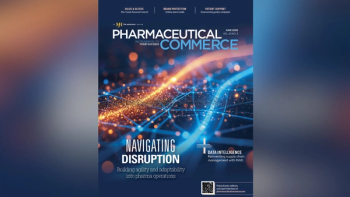
View the Pharmaceutical Commerce June 2025 issue in an interactive format.

View the Pharmaceutical Commerce June 2025 issue in an interactive format.

The June issue of Pharmaceutical Commerce highlights the importance of embracing agility—and adaptable strategies—to better navigate industry challenges.

Stay updated on the Drug Supply Chain Security Act as pharma stakeholders prepare for upcoming deadlines and improved data traceability.

The Asembia AXS25 Summit strives to explore ways to improve patient outcomes, especially for rare and complex diseases.

Ways to address limitations while also enhancing the decision-making process.

The advantages and challenges associated with structuring a patient assistance program as a non-profit foundation.

Approaches powered by RWD can clear the way for a greater focus on patient-centered care.

Doubling down on patient access and support fundamentals will win out over Washington’s next move.

Healthcare providers must enhance awareness of counterfeit medicines to protect patients, especially as online drug purchases rise.

Many uninsured and underinsured individuals remain unaware of vital financial assistance programs for prescription costs, highlighting a critical need for increased awareness and resources.

An exploration into how flawed incentives and contractual loopholes between manufacturers and pharmacy benefit managers played their part.

How practical is this form of pricing in the pharma setting?

As the adoption of biologics rises, demand for home healthcare grows, and conditions like diabetes and autoimmune disorders become more prevalent, self-injectables are here to stay.

By embracing practical, human-centered use cases, life sciences companies are breaking free from GenAI “pilotitis” and demonstrating how scalable AI solutions can help transform patient care and provider efficiency.

Why driving results from such strategies—amid industry disruption—will be critical to success.

James D. Chambers, PhD, MPharm, MSc, professor of medicine at the Tufts Medical Center Institute for Clinical Research and Health Policy Studies, dives into why biosimilars contribute to a reduction in cost and increase in patient access, while highlighting challenges to adoption.